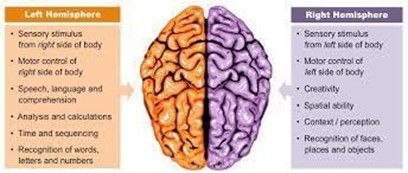A nurse in an urgent care facility is assessing a client who is currently receiving outpatient treatment for anorexia nervosa. Which of the following client data should indicate to the nurse that the client requires acute care admission?
Blood pressure 78/60 mm Hg
Weight loss 20% over last 6 months
Apical pulse rate 50/min
Body temperature 35.5° C (95.9°F)
The Correct Answer is D
Choice A rationale:
A blood pressure of 78/60 mm Hg is indicative of hypotension which is a common complication of anorexia nervosa. However. the low body temperature takes precedence
Choice B rationale:
Weight loss of 20% over the last 6 months is concerning but may not be an immediate indicator for acute care admission.
Choice C rationale:
An apical pulse rate of 50/min is bradycardia, which can be a result of anorexia nervosa, but it may not be an immediate indicator for acute care admission unless the client is symptomatic.
Choice D rationale:
A body temperature of 35.5°C (95.9°F) is below a normal range signfyng hypothermia which needs immedate intervention.
Nursing Test Bank
Naxlex Comprehensive Predictor Exams
Related Questions
Correct Answer is C
Explanation
Choice A rationale:
Aphasia, or difficulty with language, is more commonly associated with left hemispheric stroke.
Choice B rationale:
Depression can be a common psychological reaction following stroke, but it is not a specific finding associated with right hemispheric stroke.
Choice C rationale:
Right hemispheric stroke can lead to loss of depth perception and spatial awareness due to its impact on the visual-spatial processing areas of the brain.
Choice D rationale:
Slow, cautious behavior is a common finding after stroke regardless of the affected hemisphere.

Correct Answer is B
Explanation
Choice A rationale:
High-impact exercises might not be suitable for all clients and could potentially exacerbate symptoms such as joint pain or discomfort.
Choice B rationale:
Menopause is confirmed after 12 consecutive months without a menstrual period. Until this point, there is still a risk of pregnancy, and contraceptive measures should be used.
Choice C rationale:
Pelvic muscle exercises (Kegel exercises) are important for strengthening pelvic floor muscles but are not specifically related to menopause.
Choice D rationale:
Using a water-based lubricant for painful vaginal intercourse is a helpful suggestion, but it is not the primary focus of menopause education.
Whether you are a student looking to ace your exams or a practicing nurse seeking to enhance your expertise , our nursing education contents will empower you with the confidence and competence to make a difference in the lives of patients and become a respected leader in the healthcare field.
Visit Naxlex, invest in your future and unlock endless possibilities with our unparalleled nursing education contents today
Report Wrong Answer on the Current Question
Do you disagree with the answer? If yes, what is your expected answer? Explain.
Kindly be descriptive with the issue you are facing.
